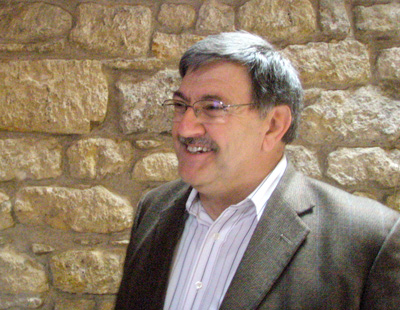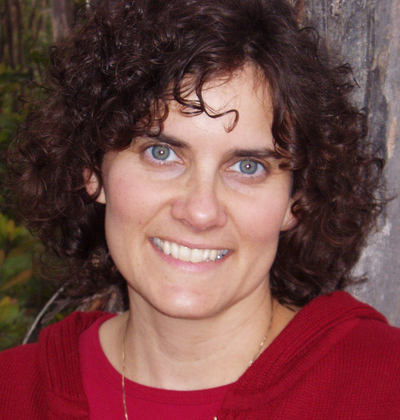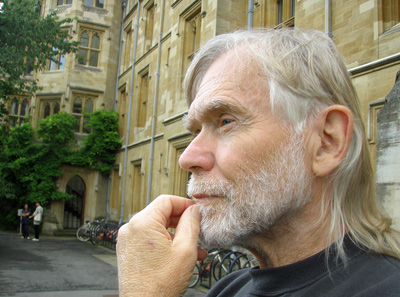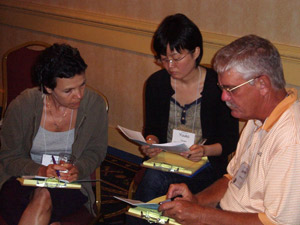| CONFERENCE OVERVIEW |
| Choose from the following sessions when registering. Choose one for each day section. See preconference and conference schedule and sessions for full titles and descriptions.
PRECONFERENCE - Socratic Questioning
- Assess Students Learning and Thinking
- Advanced Session: Develop a Thinker’s Guide
- Advanced Session: Questioning the Heart of the Critical Thinking Field
DAY ONE - Foundational Session (for new registrants)
- Advanced Session: Going Deeper: (for returning registrants)
DAY TWO Morning - Taking Ownership of Content Through Thinking
- Skilled Questioning and Close Reading
- Critical Thinking: Many Things to Many Persons
- Paulian Framework of Critical Thinking
DAY TWO Afternoon - Develop Long-Term Staff Development Plan
- Critical Questions Students Should be Asking
- Skilled Questioning and Substantive Writing
- Advanced Session: Skilled Learner as Skilled Questioner
DAY THREE - Concurrent sessions - choose at the conference, from among 30 sessions
DAY FOUR Afternoon - The Power of the Thinker’s Guide Library
- Teaching Students to Ask Multilogical Questions
- Male Chauvinism, Vulgar Feminism, Human Dogmatism
- Advanced Session: Advanced Design of Instruction
|
July 17-18, 2010
Join us for in-depth sessions at the preconference prior to the main conference. Participants who attend the preconference benefit from working together in smaller group settings and going deeper in the session content than is possible at the main conference. Particiants are able to work together with the facilitator for two full days. This year we offer two advanced sessions for returning registrants.
PRECONFERENCE SESSIONS:
{"id":3116,"title":"","author":"","content":"<p><br /> <br style=\"clear: both;\" /></p>","public_access":"1","public_downloads":"1","sku":"","files":{"0":{"id":"342","filename":"PreConf_Schedule_2010.pdf","realfilename":"PreConf_Schedule_2010.pdf","title":"PreConf_Schedule_2010.pdf","order":1}},"images":{}}
{"id":3117,"title":"","author":"","content":"<p><br /> <br style=\"clear: both;\" /></p>","public_access":"1","public_downloads":"1","sku":"","files":{},"images":{}}

Socratic questioning is disciplined questioning that can be used to pursue thought in many directions and for many purposes, including: to explore complex ideas, to get to the truth of things, to open up issues and problems, to uncover assumptions, to analyze concepts, to distinguish what we know from what we don’t know, and to follow out logical implications of thought. The key to distinguishing Socratic questioning from questioning per se is that Socratic questioning is systematic, disciplined, and deep, and usually focuses on foundational concepts, principles, theories, issues, or problems.
The art of Socratic questioning is intimately connected with critical thinking because the art of questioning is important to excellence of thought. What the word “Socratic” adds to the art of questioning is systematicity, depth, and an abiding interest in assessing the truth or plausibility of things. Critical thinkers not only ask questions, they ask deep, significant, unbiased questions.
Both critical thinking and Socratic questioning share a common end. Critical thinking provides the conceptual tools for understanding how the mind functions (in its pursuit of meaning and truth); and Socratic questioning employs those tools in framing questions essential to the pursuit of meaning and truth.
The workshop will include an introduction to the theory and practice of Socratic Questioning, through emphasis on the analysis and assessment of reasoning. Participants will be engaged in Socratic dialogue, and will gain introductory experience in Socratic questioning that, with practice, can lead to an increasingly richer understanding of the power inherent in disciplined questioning as a tool of both teaching and learning.
{"id":3118,"title":"Using the tools of critical thinking in Socratic questioning…","author":"Dr. Enoch Hale","content":"<p><img src=\"https://www.criticalthinking.org/image/pimage/Enoch_Hale-sm.jpg\" alt=\"\" hspace=\"10\" vspace=\"10\" align=\"right\" /><br /> Socratic questioning is disciplined questioning that can be used to pursue thought in many directions and for many purposes, including: to explore complex ideas, to get to the truth of things, to open up issues and problems, to uncover assumptions, to analyze concepts, to distinguish what we know from what we don&rsquo;t know, and to follow out logical implications of thought. The key to distinguishing Socratic questioning from questioning per se is that Socratic questioning is <em>systematic, disciplined, </em>and <em>deep, </em>and usually focuses on founda&shy;tional concepts, principles, theories, issues, or problems.</p>\r\n<div>&nbsp;</div>\r\n<div>The art of Socratic questioning is intimately connected with critical thinking because the art of questioning is important to excellence of thought. What the word &ldquo;Socratic&rdquo; adds to the art of questioning is systematicity, depth, and an abiding interest in assessing the truth or plausibility of things.&nbsp;Critical thinkers not only ask questions, they ask deep, significant, unbiased questions.</div>\r\n<div>&nbsp;</div>\r\n<div>Both critical thinking and Socratic questioning share a common end. Critical thinking provides the conceptual tools for understanding how the mind functions (in its pursuit of meaning and truth); and Socratic questioning employs those tools in framing questions essential to the pursuit of meaning and truth.</div>\r\n<div><br /> The workshop will include an introduction to the theory and practice of Socratic Questioning, through emphasis on the analysis and assessment of reasoning. Participants will be engaged in Socratic dialogue, and will gain introductory experience in Socratic questioning that, with practice, can lead to an increasingly richer understanding of the power inherent in disciplined questioning as a tool of both teaching and learning.</div>\r\n<hr />\r\n<p><br style=\"clear: both;\" /></p>","public_access":"1","public_downloads":"1","sku":"","files":{},"images":{}}
Using Critical Thinking Strategies to Assess Students Learning and Thinking within a Discipline…

This session will focus on a number of interrelated ways to assess the extent to which students are thinking critically within a discipline. Each strategy will emphasize reasoning through what is most central and important in the discipline. For example, asking students to write a response to central questions in the discipline serves as an excellent pre- and post-test for learning to think critically within the discipline. In a science course, it might well be “
How does the physical world operate?” In an economics class, it might be “H
ow are goods and services distributed and consumed within our society? How should they be?” In responding to fundamental questions, we can require students to organize a well-thought-through way of fitting the key insights in the course together as a whole. This session will focus on a variety of examples within multiple subjects (disciplines) that highlight assessment strategies aimed at deep learning. A holistic approach will be taken to the assessment process, with emphasis on both analysis and synthesis.
{"id":3119,"title":"Using Critical Thinking Strategies to Assess Students Learning and Thinking within a Discipline…","author":"Dr. Gerald Nosich","content":"<p>&nbsp;</p>\r\n<div><img src=\"https://www.criticalthinking.org/image/pimage/Geral_Nosich-Ox08sm.jpg\" alt=\"\" hspace=\"10\" vspace=\"10\" width=\"300\" height=\"233\" align=\"right\" />This session will focus on a number of interrelated ways to assess the extent to which students are thinking critically within a discipline.&nbsp;Each strategy will emphasize reasoning through what is most central and important in the discipline.&nbsp;For example, asking students to write a response to central questions in the discipline serves as an excellent pre- and post-test for learning to think critically within the discipline.&nbsp;In a science course, it might well be &ldquo;<em>How does the physical world operate</em>?&rdquo;&nbsp;In an economics class, it might be &ldquo;H<em>ow are goods and services distributed and consumed within our society? How should they be</em>?&rdquo; &nbsp;In responding to fundamental questions, we can require students to organize a well-thought-through way of fitting the key insights in the course together as a whole.&nbsp;This session will focus on a variety of examples within multiple subjects (disciplines) that highlight assessment strategies aimed at deep learning. A holistic approach will be taken to the assessment process, with emphasis on both analysis and synthesis.</div>\r\n<p>&nbsp;</p>\r\n<hr />\r\n<p>&nbsp;</p>\r\n<p><br style=\"clear: both;\" /></p>","public_access":"1","public_downloads":"1","sku":"","files":{},"images":{}}
Advanced Session: How to Develop a Thinker’s Guide in Your Area of Expertise…

We can think within our disciplines in skilled or unskilled ways. When we create a critical analytic inner voice using a substantive conception of critical thinking, we are better able to think within a discipline, critique the discipline and think at the highest level of skill within it. And we are better able to help students learn the discipline as a mode of thinking. But at present there are very few instructional materials within specific subjects and disciplines written from a holistic critical thinking perspective.
In this session participants will develop a plan for creating a thinker’s guide in their area of expertise or proficiency. We will use the
Thinker’s Guide to Engineering Reasoning and the Thinker’s Guide to Clinical Reasoning (in press) to begin this process, along with other relevant guides from the
Thinkers' Guide Library. Following the conference, interested persons with developed writing skills may work with Linda Elder to develop a thinker’s guide published by the Foundation for Critical Thinking.
The work in this session presupposes essential understandings in critical thinking including the elements of reasoning, intellectual standards and intellectual traits. Previous attendees are invited to attend.
{"id":3120,"title":"Advanced Session: How to Develop a Thinker’s Guide in Your Area of Expertise… ","author":"Dr. Linda Elder ","content":"<p>&nbsp;</p>\r\n<div><img src=\"https://www.criticalthinking.org/image/pimage/Linda_Elder_092_med.jpg\" alt=\"\" hspace=\"10\" vspace=\"10\" width=\"280\" height=\"294\" align=\"right\" />We can think within our disciplines in skilled or unskilled ways.&nbsp;When we create a critical analytic inner voice using a substantive conception of critical thinking, we are better able to think within a discipline, critique the discipline and think at the highest level of skill within it.&nbsp;And we are better able to help students learn the discipline as a mode of thinking.&nbsp;But at present there are very few instructional materials within specific subjects and disciplines written from a holistic critical thinking perspective.</div>\r\n<div>&nbsp;</div>\r\n<div>One way of approaching the problem is to create a thinker&rsquo;s guide to critical thinking within your area of expertise using the concepts and principles of critical thinking.&nbsp;This is precisely what several writers have done, for instance, to develop <em>the </em><a href=\"https://www.criticalthinking.org/store-page.cfm?P=products&amp;ItemID=232&amp;catalogID=224&amp;cateID=132\"><span style=\"color: #000080;\"><em><strong>Thinker&rsquo;s Guide to Engineering Reasoning</strong></em></span></a> and the <strong><em><a href=\"https://www.criticalthinking.org/store-page.cfm?P=products&amp;ItemID=395&amp;catalogID=224&amp;cateID=132\">Thinker's Guide to Clinical Reasoning</a></em></strong>.</div>\r\n<div>&nbsp;</div>\r\n<div>In this session participants will develop a plan for creating a thinker&rsquo;s guide in their area of expertise or proficiency.&nbsp;We will use the <span style=\"color: #000080;\"><strong>Thinker&rsquo;s Guide to Engineering Reasoning</strong></span> and the Thinker&rsquo;s Guide to Clinical Reasoning (in press) to begin this process, along with other relevant guides from the <a href=\"https://www.criticalthinking.org/store-page.cfm?go=1&amp;P=subcats&amp;catalogID=224&amp;cateID=132\"><span style=\"color: #000080;\"><strong>Thinkers' Guide Library</strong></span></a>.&nbsp;Following the conference, interested persons with developed writing skills may work with Linda Elder to develop a thinker&rsquo;s guide published by the Foundation for Critical Thinking.&nbsp;&nbsp;&nbsp;&nbsp;&nbsp;&nbsp;</div>\r\n<div>&nbsp;</div>\r\n<div>The work in this session presupposes essential understandings in critical thinking including the elements of reasoning, intellectual standards and intellectual traits.&nbsp;Previous attendees are invited to attend.</div>\r\n<p>&nbsp;</p>\r\n<hr />\r\n<p><br style=\"clear: both;\" /></p>","public_access":"1","public_downloads":"1","sku":"","files":{},"images":{}}
Advanced Session: Questioning the Heart of the Field.
(Thinking Through the Core Concept of Critical Thinking, the manner in which the core can be contextualized, and the ways in which contextualizations of the core can generate intellectual controversy)....
Dr. Richard Paul
 This session will be structured as follows:
This session will be structured as follows:
- We will first consider the foundational concept of critical thinking and why it will remain at the heart of critical thinking.
- Next we will consider ways in which the core concept can be contextualized. We shall see how the core provides for unification in the field, while contextualizations provide for on-going diversification.
- Then we will focus on how competing contextualizations will generate some degree of controversy in the fields in which critical thinking is applied. Thus, for example, the core concept of critical thinking applies to the idea of science. That core is contextualized somewhat differently in different scientific fields (biology, physics, chemistry, sociology…). As individuals work out their contextualizations of critical thinking in their home disciplines, some range of intellectual issues will be generated among them in virtue of their unique perspectives and the differences in the fields themselves.
This session will be designed to maximize participants taking ownership of the major insights implicit in the theory being developed and used. Participants can expect to do a good deal of reading, writing and thinking through the important questions raised in this session.
{"id":3121,"title":"Advanced Session: Questioning the Heart of the Field. ","author":"","content":"<p><span style=\"color: #000066;\"><strong><span>(Thinking Through the Core Concept of Critical Thinking,&nbsp;the manner in which the core can be contextualized, and the ways in which contextualizations of the core can generate intellectual controversy)....</span></strong></span><strong><br /> &nbsp;&nbsp; Dr. Richard Paul<br /> <br /> </strong><img src=\"https://www.criticalthinking.org/image/pimage/Richard_Paul_Oxford-08.jpg\" alt=\"\" hspace=\"10\" vspace=\"10\" width=\"300\" height=\"223\" align=\"right\" />This session will be structured as follows:</p>\r\n<ol>\r\n<li> We will first consider the foundational concept of critical thinking and why it will remain at the heart of critical thinking.</li>\r\n<li> Next we will consider ways in which the core concept can be contextualized.&nbsp;We shall see how the core provides for unification in the field, while contextualizations provide for on-going diversification.</li>\r\n<li> Then we will focus on how competing contextualizations will generate some degree of controversy in the fields in which critical thinking is applied.&nbsp;Thus, for example, the core concept of critical thinking applies to the idea of science.&nbsp;That core is contextualized somewhat differently in different scientific fields (biology, physics, chemistry, sociology&hellip;).&nbsp;As individuals work out their contextualizations of critical thinking in their home disciplines, some range of intellectual issues will be generated among them in virtue of their unique perspectives and the differences in the fields themselves.</li>\r\n</ol>\r\n<div>This session will be designed to maximize participants taking ownership of the major insights implicit in the theory being developed and used.&nbsp;Participants can expect to do a good deal of reading, writing and thinking through the important questions raised in this session.</div>\r\n<p><br style=\"clear: both;\" /></p>","public_access":"1","public_downloads":"1","sku":"","files":{},"images":{}}
{"id":3122,"title":"","author":"","content":"<p><img style=\"float: right;\" src=\"https://www.criticalthinking.org/image/pimage/P1010120_web.jpg\" alt=\"\" /><br /> <br style=\"clear: both;\" /></p>","public_access":"1","public_downloads":"1","sku":"","files":{},"images":{}}

 This session will focus on a number of interrelated ways to assess the extent to which students are thinking critically within a discipline. Each strategy will emphasize reasoning through what is most central and important in the discipline. For example, asking students to write a response to central questions in the discipline serves as an excellent pre- and post-test for learning to think critically within the discipline. In a science course, it might well be “How does the physical world operate?” In an economics class, it might be “How are goods and services distributed and consumed within our society? How should they be?” In responding to fundamental questions, we can require students to organize a well-thought-through way of fitting the key insights in the course together as a whole. This session will focus on a variety of examples within multiple subjects (disciplines) that highlight assessment strategies aimed at deep learning. A holistic approach will be taken to the assessment process, with emphasis on both analysis and synthesis.
This session will focus on a number of interrelated ways to assess the extent to which students are thinking critically within a discipline. Each strategy will emphasize reasoning through what is most central and important in the discipline. For example, asking students to write a response to central questions in the discipline serves as an excellent pre- and post-test for learning to think critically within the discipline. In a science course, it might well be “How does the physical world operate?” In an economics class, it might be “How are goods and services distributed and consumed within our society? How should they be?” In responding to fundamental questions, we can require students to organize a well-thought-through way of fitting the key insights in the course together as a whole. This session will focus on a variety of examples within multiple subjects (disciplines) that highlight assessment strategies aimed at deep learning. A holistic approach will be taken to the assessment process, with emphasis on both analysis and synthesis. We can think within our disciplines in skilled or unskilled ways. When we create a critical analytic inner voice using a substantive conception of critical thinking, we are better able to think within a discipline, critique the discipline and think at the highest level of skill within it. And we are better able to help students learn the discipline as a mode of thinking. But at present there are very few instructional materials within specific subjects and disciplines written from a holistic critical thinking perspective.
We can think within our disciplines in skilled or unskilled ways. When we create a critical analytic inner voice using a substantive conception of critical thinking, we are better able to think within a discipline, critique the discipline and think at the highest level of skill within it. And we are better able to help students learn the discipline as a mode of thinking. But at present there are very few instructional materials within specific subjects and disciplines written from a holistic critical thinking perspective. This session will be structured as follows:
This session will be structured as follows: